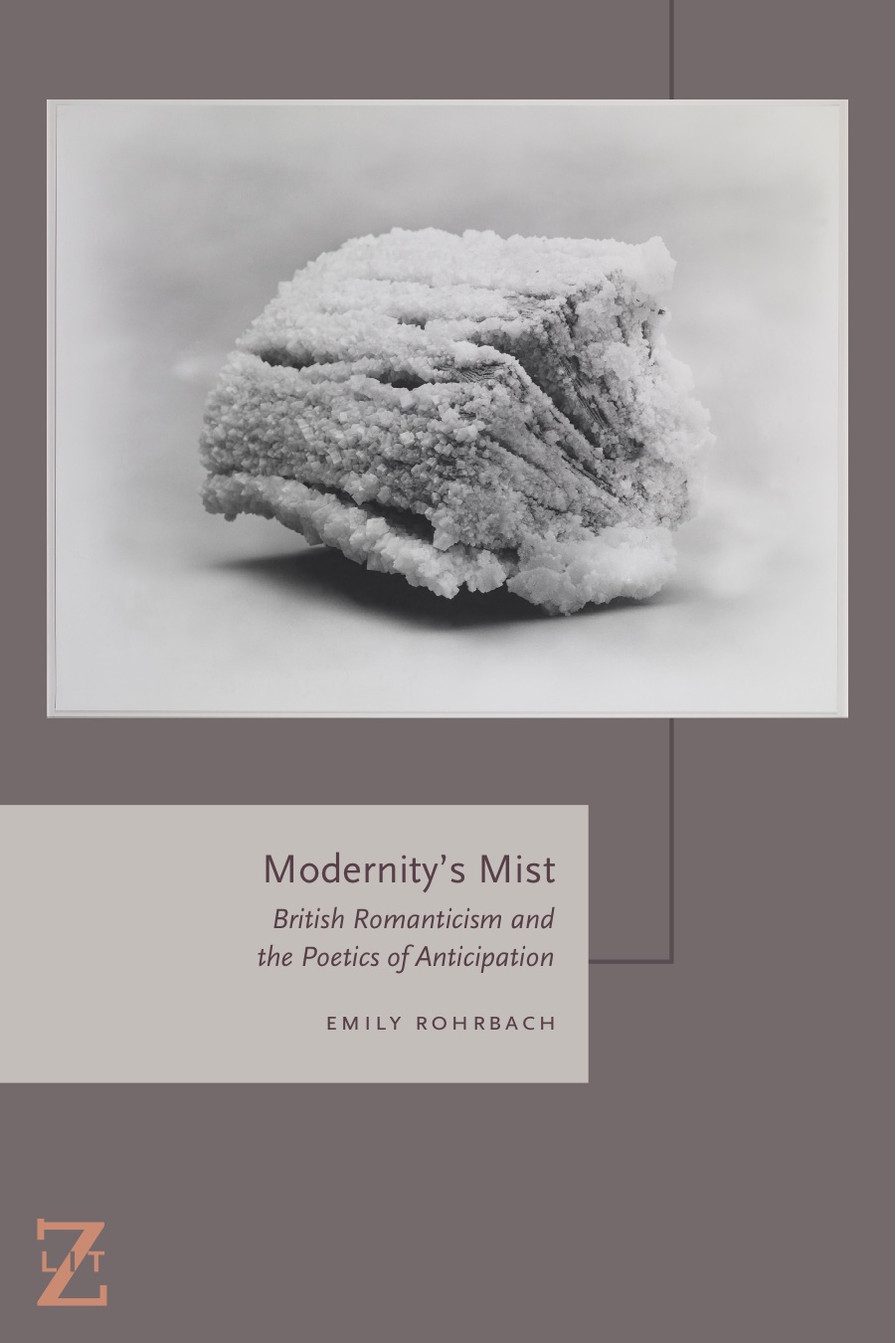In December 2015, Fordham University Press published my book, Modernity’s Mist: British Romanticism and the Poetics of Anticipation, in the new “Lit Z” series. It has been reviewed widely: by Deborah Elise White (Emory) in Studies in Romanticism; by Lauren Neefe in Romantic Circles; by Kevis Goodman (UC Berkeley) in Review 19; by Thomas Knowles (Birmingham) in The Byron Journal; by Ralph Pite (Bristol) in European Romantic Review; and by Jeffrey Cox (UC Boulder) in SEL‘s “Recent Studies in the Nineteenth Century.”

“For too long critics and scholars have focused concerns about Romantic futurity in the pyrotechnical, apocalyptic texts of Blake and company. Rohrbach, in a series of original readings, sets our sights on more pervasive, everyday engagements with the future. Her exemplary, well-chosen authors, especially Keats, feel the pressure of the future on the present and tend not to resort to the Bible, as do some of their contemporaries, to make sense of the future to come. Thanks to Rohrbach we are in a much better position to understand what was so urgent, if not quite knowable, for Romantic poets and novelists.”—Ian Balfour, York University
“Lucidly argued and beautifully written, Modernity’s Mist will help us think in new ways about what we mean when we speak of the historicity of a text. Emily Rohrbach identifies in Keats, Austen, Byron, and other early nineteenth-century writers, whose sense of their present moment was shadowed by the uncertainty and inaccessibility of the future, a kind of historical thinking that has to do less with context and more with the temporal experiences of reading —variously dizzying, digressive, or shot through with anticipation—enacted by poetic form and non-linear narrative structures.”—Kevis Goodman, University of California, Berkeley
“Emily Rohrbach’s Modernity’s Mist is an imaginatively conceived, scrupulously researched, and beautifully written work of Romantic literary criticism.”—Forest Pyle, University of Oregon
“In Modernity’s Mist Emily Rohrbach has written a counter-history to Nietzsche’s account of modernity as the story of the present indebting itself to the future by making a promise to it. She has given us a non-apocalyptic framework for understanding Romanticism’s secular engagement with a future whose inscrutability makes it neither necessarily redemptive nor destructive. Remarkable here is not just the elegance with which Rohrbach renders the readerly experience of being beset by the shadows of things that elude direct experience or narrative totalization, but the absence of bitterness with which she handles a subject that might well occasion it, given the disproportion between the ‘plenty’ of multiple if unrealized, competing possibilities and the relative ‘little’ of actual historical outcomes.”—Anne-Lise François, University of California, Berkeley